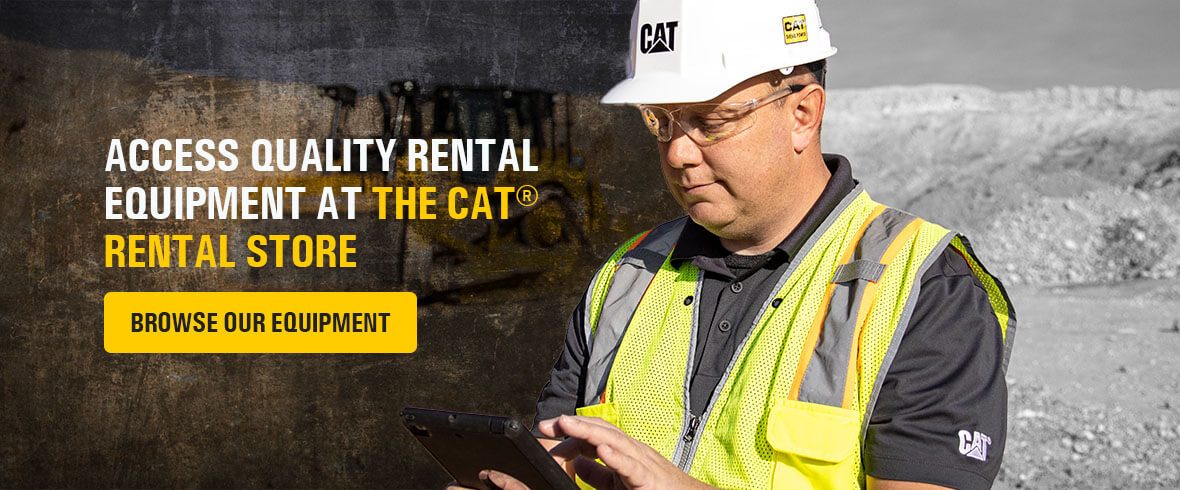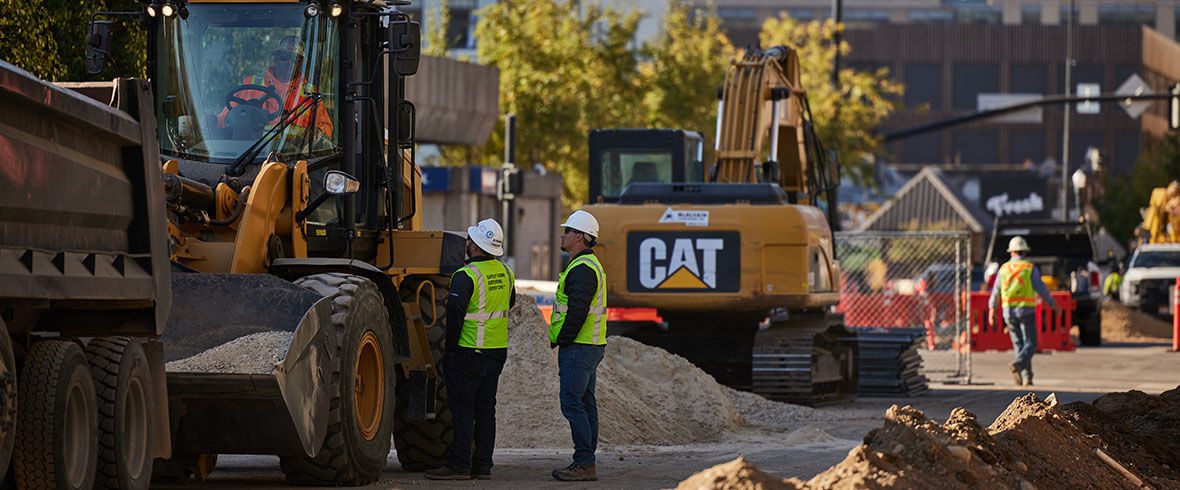
Understanding the Financial Benefits of Equipment Rental
As a large business owner, keeping your operations profitable requires smart financial decisions. One of the most impactful choices you can make is deciding whether to rent or buy your equipment. The financial benefits of equipment rental can be significant. Renting reduces upfront costs, saves you from ongoing maintenance, and frees capital for other business needs. It also offers flexibility to adapt to changing project demands without being locked into ownership.
This guide explores how equipment rental works, the industries that benefit most, and the financial advantages and factors to consider before you rent. By the end, you’ll have a clear picture of how rentals can strengthen your bottom line.
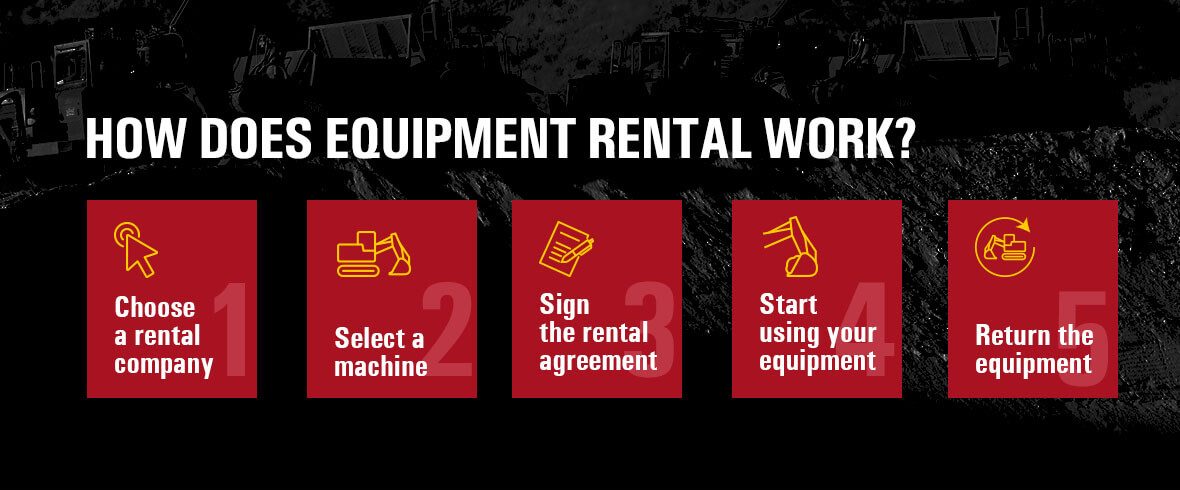
How Does Equipment Rental Work?
The process is straightforward:
- Choose a rental company: Look for a provider with a strong reputation, transparent pricing, and the ability to meet your needs. The Cat® Rental Store, for example, gives you access to a wide selection of machines and attachments through its global network of certified dealers.
- Select equipment: Your rental partner can recommend machines based on your project’s size, duration, and environment. You may also need to consider attachments or specialized tools.
- Sign the rental agreement: Agreements cover terms, payment schedules, and details about maintenance and repairs. Always read thoroughly before signing.
- Start working: Pick up your machine or arrange delivery to your site.
- Return when finished: At the end of the project, return the machine and eliminate long-term ownership responsibilities.
Industries That Benefit From Renting
Many industries gain an edge by renting equipment rather than buying:
General construction: From bulldozers to excavators, renting ensures you have the right machine for each project.
Agriculture: Seasonal tasks often call for specialized machinery like tractors or wheel loaders. Renting keeps costs down without long-term commitments.
Energy: Renewable energy projects require cranes, lifts, and excavators. Rentals provide reliable access without high ownership costs.
HVAC: Installers and maintenance teams often rely on scaffolding, lifts, and specialized tools.
Warehousing and logistics: Forklifts and conveyors are available when needed without the need to invest in permanent fleet expansion.
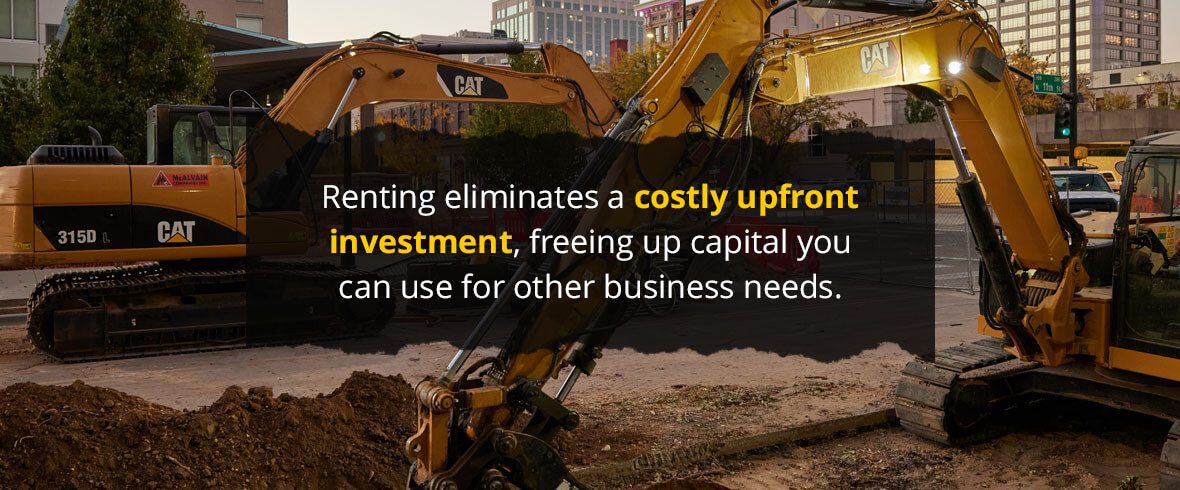
11 Financial Benefits of Equipment Rental
Here are the top ways rentals improve your bottom line:
- No upfront purchase costs: Renting eliminates steep capital investments. You pay only for what you use.
- Access specialty equipment: Take on larger projects by renting machines you don’t keep in your regular fleet.
- Stay competitive: Expand capabilities and bid on more complex projects.
- Meet tight deadlines: Rentals fill gaps quickly if your owned equipment breaks down or demand spikes.
- Avoid disposal headaches: Return equipment instead of worrying about depreciation or resale value.
- Keep fleets lean: Rent as you expand to new services or project types without committing to permanent purchases.
- Skip maintenance costs: Certified dealers handle repairs and servicing.
- Use the latest models: Rentals give you access to new, efficient, and safe machines.
- Flexibility and convenience: Scale up or down with daily, weekly, or monthly rental terms.
- No storage or transport costs: Dealers handle delivery and pickup, saving you space and logistics costs.
- Stay compliant and safe: Rented machines are maintained to meet strict safety standards.
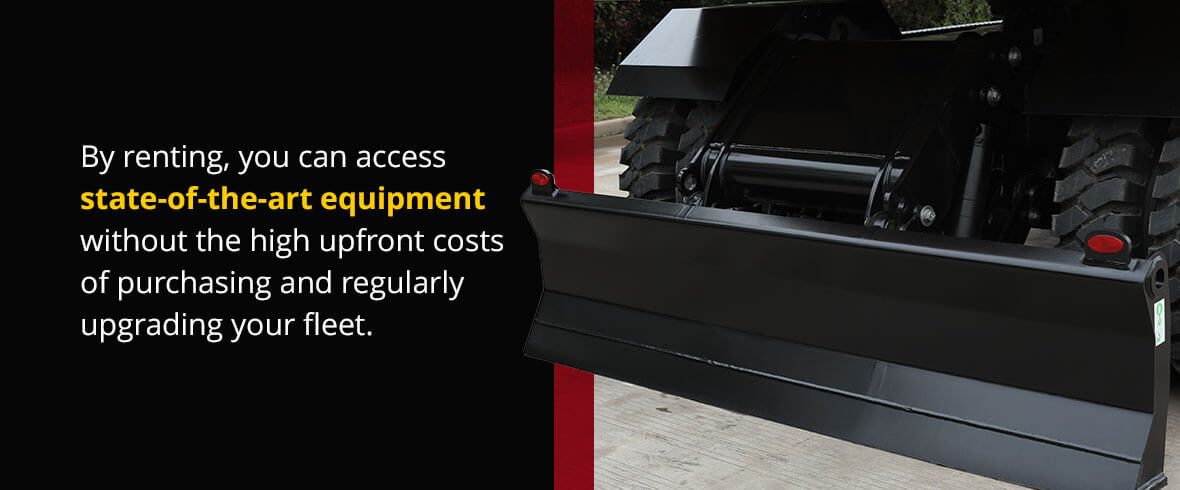
Renting vs. Buying: Which Is Right for You?
Both renting and buying have advantages. Renting offers flexibility, eliminates maintenance, and keeps costs predictable. Buying may pay off for businesses with consistent, ongoing equipment needs by building asset value. Carefully weigh your workload, capital, and growth goals before deciding.
Future Trends in Equipment Rental
The rental industry is expanding rapidly. Key trends include:
Sustainability: Dealers are adding eco-friendly machines that reduce emissions.
Digitalization: Online rental systems streamline processes and improve customer service.
Telematics: Data tracking improves safety, extends equipment life, and lowers costs.
Factors to Consider Before Renting
Before signing an agreement, think about:
- Equipment type, size, and attachments you need
- Your budget, including delivery and pickup costs
- Rental duration and flexibility
- Equipment availability in your area
- The provider’s reputation and support
- Agreement terms and conditions
Why Choose The Cat® Rental Store?
The Cat Rental Store offers unmatched benefits:
- Access to forklifts, scissor lifts, telehandlers, boom lifts, excavators, trailers, generators, and concrete equipment.
- Certified safety checks, routine maintenance, and on-site support.
- Flexible terms that match your project needs.
- A global network of more than 1,300 locations.
